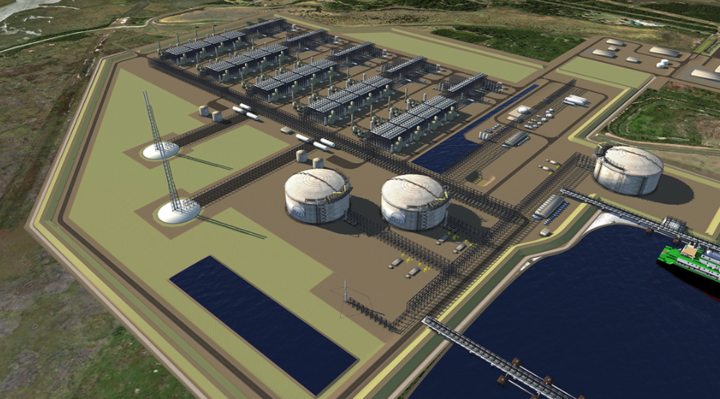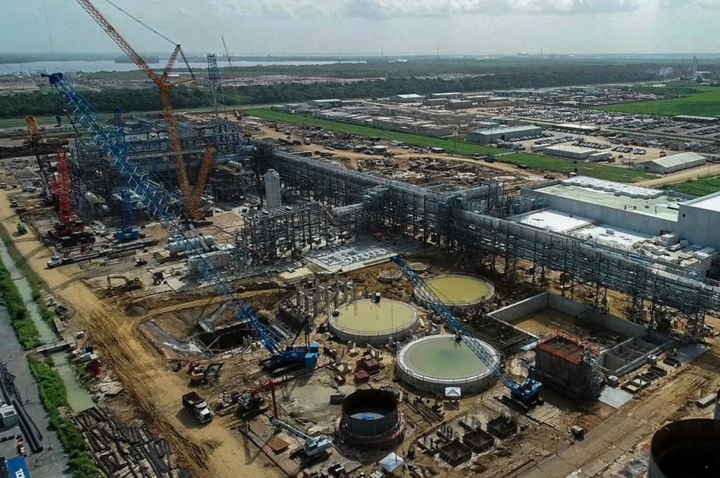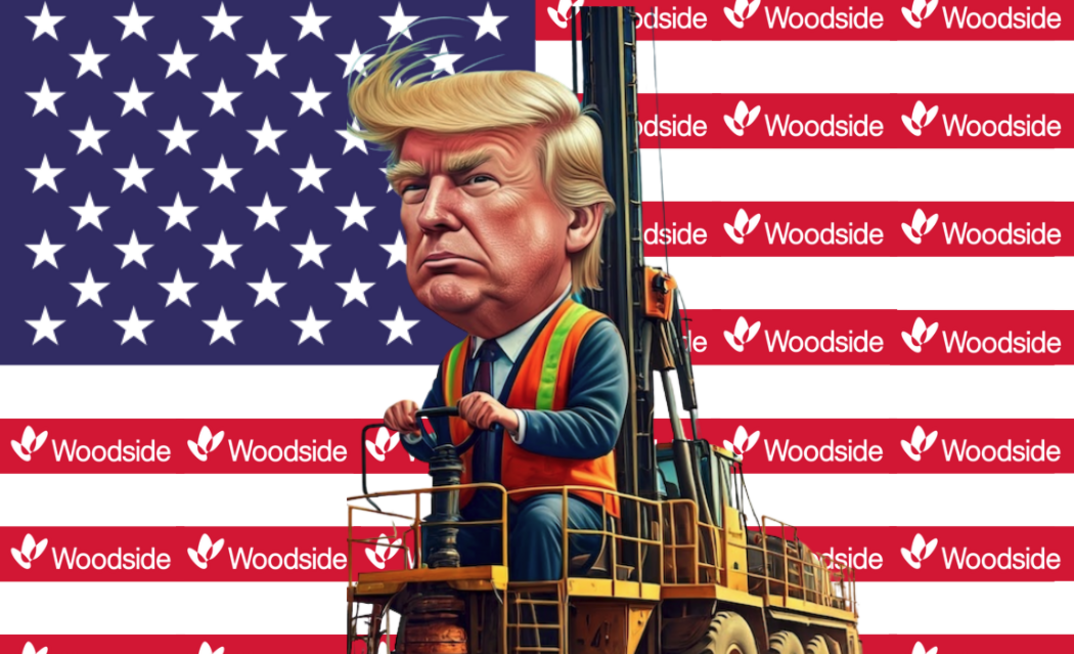Woodside Energy is going all-in on US LNG, betting big that a Trump 2.0 White House will supercharge fossil fuel investment.
While it's scaling back on hydrogen, CEO Meg O'Neill, like other majors, is focusing on the US, seeing it as a rock-solid, high-growth hotspot for oil and gas.

"The US has become an increasingly attractive investment destination for Woodside due to its stable regulatory environment and strong support for the oil and gas sector," O'Neill told investors recently, highlighting the company's ability to leverage its financial strength and LNG marketing expertise to establish a competitive foothold in North America.
YOU MIGHT ALSO LIKE
The Australian energy major has committed billions to its US portfolio, including a major push into LNG via the Louisiana LNG project and the recent acquisition of the Beaumont New Ammonia Project in Texas.

Woodside's US LNG expansion might seem like smooth sailing, but with Trump it could be perfect one day, a nightmare the next. His latest moves—like slapping 25% tariffs on steel and aluminium with zero warning and getting embroiled in a fight with Malcolm Turnbull—show just how unpredictable his leadership can be. If Trump's mood swings spill into trade policy, Woodside's billion-dollar US gamble could get a whole lot riskier.
But despite these risks, Woodside remains confident in its ability to navigate shifting policy dynamics.
"Woodside will bring a differentiated approach to financing through our ability to finance on balance sheet and market our own LNG," a spokesperson said, adding that many competing projects reliant on external financing must secure long-term, fixed-fee Henry Hub contracts –an area where Woodside does not compete.
Woodside reckons its secret sauce is the Louisiana project's strategic edge—perfectly positioned in the Atlantic Basin to complement its Pacific operations while opening the door to new markets. It's a two-for-one play: strengthening its footprint and staking a claim in fresh territory.
"In 2024, we secured long-term sales agreements for over 15 million tonnes of LNG to Asian buyers from our global portfolio," the spokesperson said.
And while trade uncertainty remains a concern, Woodside sees the controversial change in the White House as a net positive for the sector.
"The Trump administration is promoting a strong investment climate for oil and gas and the LNG industry. It is also supporting US gas exports into Europe," the spokesperson said.
They also pointed to Washington's pro-development stance as a key factor in Woodside's decision to accelerate its US projects.
"This support for major projects and the streamlining of permit approvals is creating momentum for industry. By contrast, a lack of policy clarity in other jurisdictions has led to project delays, impacting global energy access."
The company describes Louisiana LNG as an "advantaged project" with a competitive edge over many rival developments still navigating regulatory hurdles.
"It is fully permitted, which gives it a strong point of differentiation. We are very happy with our current position."
And what of hydrogen?
Woodside has attributed its slowdown in hydrogen investments to shifting energy priorities, raising questions about whether the company is steering away from renewables in favor of traditional energy assets.
However, Woodside describes the decision as a pragmatic one based on commercial viability rather than a fundamental strategy shift.
"Woodside made a strategic decision to delay FID on H2OK, prioritising the Beaumont New Ammonia Project, located in Beaumont Texas," the spokesperson said.

"We announced the Beaumont acquisition in 2024, and the transaction closed on 30 September."
The project, which is expected to produce up to 2.2 million tonnes per annum of lower-carbon ammonia globally, is targeting first production in the second half of 2025.
"The Beaumont Project is a competitively advantaged, de-risked investment offering strong commercial and strategic rationale. We expect it to generate strong returns and cash flow once production reaches steady state."
As Woodside deepens its exposure to the US energy sector, it is betting that Trump's policies will continue to favour fossil fuel development. However, with trade tensions still a wildcard, the long-term stability of its US expansion remains uncertain.























